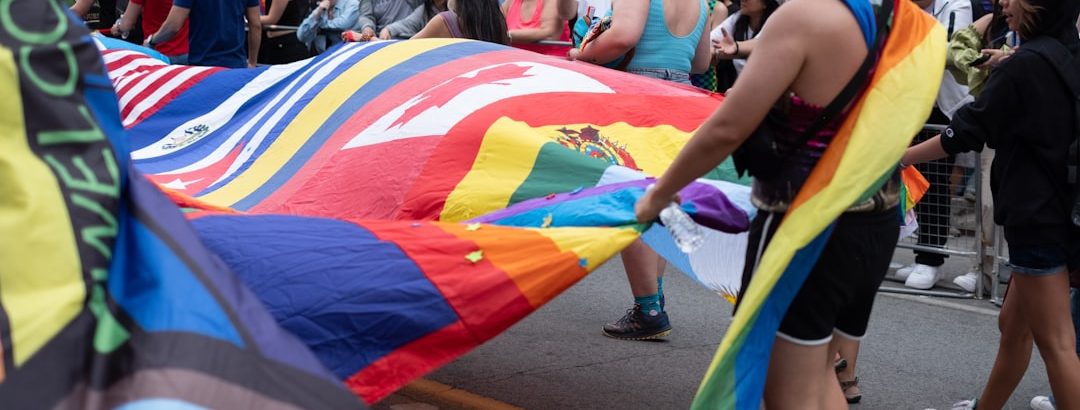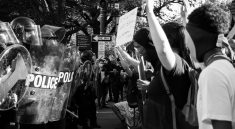The history of LGBTQ rights is a complex tapestry woven from the threads of struggle, resilience, and gradual progress. The journey toward equality began long before the modern LGBTQ rights movement took shape, with early instances of resistance against societal norms dating back to the 19th century. In the late 1800s, figures like Karl-Maria Kertbeny and Magnus Hirschfeld began advocating for the decriminalization of homosexuality in Germany, laying the groundwork for future activism.
The early 20th century saw the emergence of organizations such as the Society for Human Rights in Chicago, which was founded in 1924 and is often credited as the first gay rights organization in the United States. However, it was not until the post-World War II era that a more organized and visible movement began to take form, spurred by a growing awareness of sexual orientation as a fundamental aspect of human identity. The Stonewall Riots of 1969 marked a pivotal moment in LGBTQ history, igniting a wave of activism that would shape the landscape for decades to come.
The riots were a response to a police raid at the Stonewall Inn in New York City, a popular gathering place for the LGBTQ community. This event galvanized individuals and organizations to demand equal rights and protections, leading to the formation of groups like the Gay Liberation Front and the Human Rights Campaign. The 1970s and 1980s saw further advancements, including the first Pride marches and increased visibility for LGBTQ individuals in society.
However, this period was also marked by tragedy, as the AIDS crisis devastated communities and highlighted the urgent need for healthcare and support. The activism that arose in response to this crisis not only sought to address health disparities but also pushed for broader societal acceptance and legal recognition of LGBTQ individuals.
Key Takeaways
- LGBTQ rights have a long history of struggle and activism, with significant milestones including the Stonewall Riots and the legalization of same-sex marriage.
- Current challenges facing the LGBTQ community include discrimination in employment, healthcare, and housing, as well as high rates of violence and homelessness among LGBTQ individuals.
- Legal and policy advances in LGBTQ rights have included anti-discrimination laws, hate crime protections, and the repeal of “Don’t Ask, Don’t Tell” and the Defense of Marriage Act.
- Intersectionality is crucial in understanding and addressing the diverse experiences of LGBTQ individuals, particularly those who also face discrimination based on race, gender identity, or disability.
- LGBTQ representation in media and politics is essential for challenging stereotypes, increasing visibility, and advocating for inclusive policies and legislation.
- Globally, LGBTQ rights vary widely, with some countries legalizing same-sex marriage and protecting LGBTQ individuals, while others criminalize same-sex relationships and promote discrimination.
- Allies play a crucial role in advancing LGBTQ equality by advocating for inclusive policies, challenging discrimination, and supporting LGBTQ individuals in their communities.
- The future of LGBTQ rights requires ongoing efforts to address systemic discrimination, promote inclusive education and healthcare, and advocate for comprehensive legal protections and social acceptance.
Current Challenges Facing the LGBTQ Community
Despite significant progress over the past few decades, the LGBTQ community continues to face numerous challenges that threaten their rights and well-being. Discrimination remains pervasive in various aspects of life, including employment, housing, and healthcare. Many individuals still encounter hostility or bias based on their sexual orientation or gender identity, leading to a climate of fear and uncertainty.
For instance, studies have shown that LGBTQ individuals are more likely to experience workplace discrimination compared to their heterosexual counterparts, which can result in economic instability and mental health issues. Additionally, transgender individuals face particularly high rates of violence and discrimination, with many states lacking comprehensive protections against such injustices. Moreover, the political landscape has become increasingly polarized regarding LGBTQ rights.
In recent years, there has been a resurgence of anti-LGBTQ legislation in several states across the U.S., targeting areas such as transgender healthcare access and participation in sports. These legislative efforts often stem from deeply ingrained societal prejudices and misinformation about LGBTQ identities. The backlash against progress has created an environment where many LGBTQ individuals feel vulnerable and marginalized.
Furthermore, intersectional challenges arise for those who belong to multiple marginalized groups, such as LGBTQ people of color or those with disabilities, compounding their struggles for acceptance and equality. As a result, addressing these challenges requires a multifaceted approach that considers the diverse experiences within the LGBTQ community.
Legal and Policy Advances in LGBTQ Rights

Over the years, there have been significant legal and policy advances that have transformed the landscape of LGBTQ rights. Landmark Supreme Court cases such as Obergefell v. Hodges in 2015 legalized same-sex marriage nationwide, marking a monumental victory for LGBTQ advocates. This ruling not only affirmed the right to marry but also symbolized broader societal acceptance of same-sex relationships.
In addition to marriage equality, various states have enacted laws prohibiting discrimination based on sexual orientation and gender identity in employment, housing, and public accommodations. These legal protections are crucial for ensuring that LGBTQ individuals can live freely without fear of discrimination or harassment. However, while these advances represent significant progress, they are not universally guaranteed across all jurisdictions.
The patchwork nature of legal protections means that many LGBTQ individuals still live in areas where they lack basic rights. For instance, some states have enacted “religious freedom” laws that allow businesses to refuse service to LGBTQ individuals based on religious beliefs, effectively undermining anti-discrimination efforts. Furthermore, ongoing debates surrounding transgender rights—particularly regarding access to healthcare and participation in sports—highlight the need for continued advocacy and legal reform.
As society evolves, it is essential for advocates to remain vigilant in protecting hard-won rights while pushing for comprehensive policies that address the needs of all members of the LGBTQ community.
Intersectionality and LGBTQ Rights
| Category | Metrics |
|---|---|
| Intersectionality | Representation of LGBTQ individuals from diverse backgrounds in leadership positions |
| Intersectionality | Intersectional policies and programs addressing the needs of LGBTQ individuals from different racial, ethnic, and socio-economic backgrounds |
| LGBTQ Rights | Legal protections for LGBTQ individuals in employment, housing, and public accommodations |
| LGBTQ Rights | Access to healthcare services and non-discriminatory healthcare policies for LGBTQ individuals |
Intersectionality plays a critical role in understanding the diverse experiences within the LGBTQ community. Coined by scholar Kimberlé Crenshaw in 1989, intersectionality refers to how various social identities—such as race, gender, class, and sexual orientation—interact to create unique experiences of oppression or privilege. For instance, LGBTQ individuals who are also people of color often face compounded discrimination that is distinct from that experienced by white LGBTQ individuals.
This intersectional lens is vital for recognizing that advocacy efforts must address not only sexual orientation and gender identity but also other factors that influence an individual’s experience within society. The importance of intersectionality is further underscored by the need for inclusive policies that reflect the realities faced by marginalized groups within the LGBTQ community. For example, Black transgender women experience disproportionately high rates of violence and discrimination compared to their white counterparts.
Advocacy organizations must prioritize intersectional approaches to ensure that all voices are heard and represented in discussions about rights and protections. By embracing intersectionality, advocates can work toward creating a more equitable society that acknowledges and addresses the unique challenges faced by individuals at the intersections of multiple identities.
The Importance of LGBTQ Representation in Media and Politics
LGBTQ representation in media and politics is crucial for fostering understanding and acceptance within society. When LGBTQ individuals see themselves reflected in television shows, films, literature, and political leadership, it validates their experiences and helps combat stereotypes and misconceptions. Positive representation can challenge harmful narratives while promoting empathy among audiences who may not be familiar with LGBTQ issues.
For instance, shows like “Pose” and “Schitt’s Creek” have garnered acclaim for their authentic portrayals of LGBTQ characters and storylines, contributing to broader societal acceptance and understanding. In politics, representation is equally vital for ensuring that LGBTQ voices are included in decision-making processes that affect their lives. Elected officials who identify as LGBTQ can advocate for policies that address specific needs within the community while serving as role models for future generations.
The increasing visibility of openly LGBTQ politicians—such as Pete Buttigieg and Tammy Baldwin—signals progress toward greater inclusivity in governance. However, it is essential to recognize that representation alone is not enough; it must be accompanied by meaningful action to advance policies that promote equality and protect against discrimination.
Global Perspectives on LGBTQ Rights

The global landscape of LGBTQ rights is marked by stark contrasts, with some countries making significant strides toward equality while others maintain oppressive laws and practices. In many Western nations, legal protections for LGBTQ individuals have expanded dramatically over recent decades; however, this progress is not mirrored worldwide. In several countries across Africa, Asia, and the Middle East, homosexuality remains criminalized, often punishable by imprisonment or even death.
These harsh realities highlight the urgent need for international advocacy efforts aimed at promoting human rights for all individuals regardless of their sexual orientation or gender identity. International organizations such as Human Rights Watch and Amnesty International play a crucial role in documenting abuses against LGBTQ individuals globally while advocating for policy changes at national and international levels. Additionally, grassroots movements within countries facing severe repression are vital for driving change from within.
Activists often risk their lives to fight for basic rights and protections; their courage serves as an inspiration for others around the world. As global awareness of LGBTQ issues continues to grow, it is essential for allies to support these movements through advocacy, funding, and solidarity efforts.
The Role of Allies in Advancing LGBTQ Equality
Allies play an indispensable role in advancing LGBTQ equality by using their privilege to advocate for change and support marginalized communities. Being an ally involves actively listening to LGBTQ voices, amplifying their concerns, and standing up against discrimination whenever it arises. Allies can contribute significantly by educating themselves about LGBTQ issues and sharing this knowledge with others to combat ignorance and prejudice.
This can take many forms—from participating in Pride events to engaging in conversations about inclusivity within their workplaces or communities. Moreover, allies can leverage their positions within institutions—be it corporate environments or educational settings—to implement policies that promote diversity and inclusion. By advocating for comprehensive anti-discrimination policies or supporting employee resource groups focused on LGBTQ issues, allies can help create safer spaces where everyone feels valued and respected.
Ultimately, allyship is about recognizing one’s privilege while actively working toward dismantling systems of oppression that affect marginalized communities.
The Future of LGBTQ Rights: Goals and Strategies
Looking ahead, the future of LGBTQ rights hinges on continued advocacy efforts aimed at achieving full equality across all aspects of life. One primary goal is to secure comprehensive non-discrimination protections at both federal and state levels in countries like the United States where such protections remain inconsistent. This includes advocating for legislation that explicitly prohibits discrimination based on sexual orientation or gender identity in employment, housing, healthcare access, and public accommodations.
Additionally, addressing mental health disparities within the LGBTQ community is crucial for fostering overall well-being. Strategies should include increasing access to culturally competent mental health services while combating stigma surrounding mental health issues within both LGBTQ spaces and broader society. Furthermore, ongoing education about intersectionality will be vital for ensuring that advocacy efforts are inclusive of all identities within the community.
In conclusion, while significant strides have been made toward achieving equality for LGBTQ individuals over the past several decades, there remains much work to be done. By focusing on intersectional approaches, fostering representation across media and politics, supporting grassroots movements globally, empowering allies to advocate effectively, and pursuing comprehensive legal protections—advocates can work toward a future where all individuals are free to express their identities without fear or discrimination.
For those interested in exploring more about LGBTQ rights, it’s essential to stay informed and connected. While the provided links primarily lead to general pages, you can often find related information or contact details to inquire further about specific topics such as LGBTQ rights. For instance, you might want to visit the contact page of the website for direct inquiries or to engage with content related to LGBTQ issues. You can access this page by clicking on the following link: Contact Us. This could be a starting point to gather more information or to express your interest in LGBTQ rights and related topics.
FAQs
What are LGBTQ rights?
LGBTQ rights refer to the legal and social rights of lesbian, gay, bisexual, transgender, and queer individuals. These rights include the right to marry, the right to be free from discrimination, and the right to express one’s gender identity and sexual orientation without fear of persecution.
What are some examples of LGBTQ rights?
Examples of LGBTQ rights include the right to marry and have a family, the right to be free from discrimination in employment and housing, the right to serve openly in the military, and the right to access healthcare services without discrimination.
What is the current status of LGBTQ rights globally?
The status of LGBTQ rights varies widely around the world. While some countries have made significant progress in recognizing and protecting LGBTQ rights, others still have laws and policies that discriminate against LGBTQ individuals. In some countries, LGBTQ individuals face violence, persecution, and even death because of their sexual orientation or gender identity.
What are some challenges facing LGBTQ rights?
Challenges facing LGBTQ rights include discrimination, lack of legal protections, violence and hate crimes, and societal stigma. LGBTQ individuals also face challenges in accessing healthcare, education, and employment opportunities.
What are some organizations working to advance LGBTQ rights?
There are numerous organizations working to advance LGBTQ rights, including Human Rights Campaign, GLAAD, The Trevor Project, and the International Lesbian, Gay, Bisexual, Trans and Intersex Association (ILGA). These organizations work to advocate for policy changes, provide support and resources for LGBTQ individuals, and raise awareness about LGBTQ issues.


